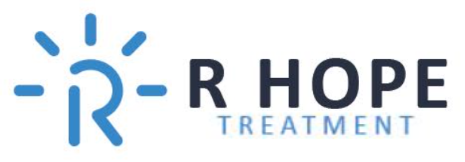Autism
PrTMS Therapy Providers located in Chicago
The most recent data indicates that close to 2% of eight-year-old children are affected by autism spectrum disorder. The specialists at MindSet are at the forefront of an innovative treatment for autism: personalized repetitive transcranial magnetic stimulation (PrTMS®). By restoring unbalanced brainwaves to their normal state, PrTMS® may normalize nerve function and lead to an improvement in autism symptoms. To delve deeper into the potential of PrTMS® in treating autism, please contact our office in Chicago, Illinois, or schedule an appointment via our online platform.
Autism Q & A
Autism spectrum disorder (ASD) is a neurodevelopmental disorder characterized by a range of symptoms that appear in early childhood and persist throughout adulthood. ASD encompasses a wide range of abilities, but everyone diagnosed with autism shares three core problems:
- Difficulty communicating and socializing
- Repetitive patterns of behavior
- Restrictive interests and activities
The severity and nature of their challenges vary for each person with autism. For example, some children with autism don’t speak, while others talk continuously about one subject. However, the core concerns are significant enough to interfere with their success at school, at home, and in the community.
These are only a few examples of the early signs of autism:
Signs of communication or socialization problems include:
- Making little or no eye contact
- Not responding to their name
- Preferring to play alone
- Repeating phrases verbatim
- Talking only about their specific interest
Signs of restrictive and repetitive behaviors include:
- Showing an interest in only one toy or object
- Repeatedly performing the same motion
- Constantly watching the same video
- Adhering to a very specific routine
- Becoming upset at a change in their routine
Children with autism often have sensory processing disorders. As a result, they’re hypersensitive to lights, odors, temperature, and sounds.
PrTMS uses TMS to treat autism but significantly improves on the procedure by personalizing therapy to meet the brain’s unique brainwave pattern. Our team at MindSet has developed three steps to optimize PrTMS results.
For the first step, they map brainwave activity using an electroencephalogram (EEG). Using our AI program, we can produce an accurate image of the brain’s electrical activity, allowing us to identify brain arrhythmias.
For the second step, patients complete a questionnaire that identifies symptoms, giving the team a comprehensive analysis of mental health and enabling them to target the precise brain areas that are associated with a patient’s particular challenges.
Finally, the EEG data and self-reported symptoms are evaluated by their innovative AI software. This advanced program produces the information needed to develop a customized PrTMS therapy protocol for each unique brain mapping.
Your treatment will consist of five sessions every week for 6-8 weeks. The sessions only take about 30 minutes, and when they’re over, patients can get back to normal daily activities.
Throughout treatment, patients have additional EEGs to evaluate progress and refine the PrTMS therapy. This ongoing evaluation gives the team at MindSet the ability to use the lowest possible TMS intensity to achieve optimal results.
Most patients at MindSet experience an improvement in their symptoms within several weeks of when their PrTMS treatments begin. Though not as common, patients may notice results within a few days.
If someone you know has autism and if their symptoms don’t respond to conventional treatments, PrTMS can help. To schedule an appointment please don’t hesitate to give us a call.
Major Depression
Persistent sadness, loss of interest in activities, difficulty initiating tasks, and changes in appetite and behavior.
Sleep Disorders
Problems with the quality, timing, and amount of sleep, leading to daytime distress and impaired functioning. Common disorders include insomnia, obstructive sleep apnea, parasomnias, narcolepsy, and restless leg syndrome.
Anxiety Disorders:
Intense, excessive worry and fear about everyday situations, often involving panic attacks.
Stroke Recovery
Rehabilitation therapies to help patients relearn skills and adapt after a stroke, which can cause memory and language impairments, and difficulties with everyday tasks.
Obsessive-Compulsive Disorder (OCD)
Uncontrollable, excessive thoughts leading to repetitive behaviors, which interfere with daily life and functioning.
Post-Traumatic Stress Disorder (PTSD)
A condition that develops after experiencing a shocking, frightening, or dangerous event. Symptoms can worsen and persist for months or years, interfering with daily life.
